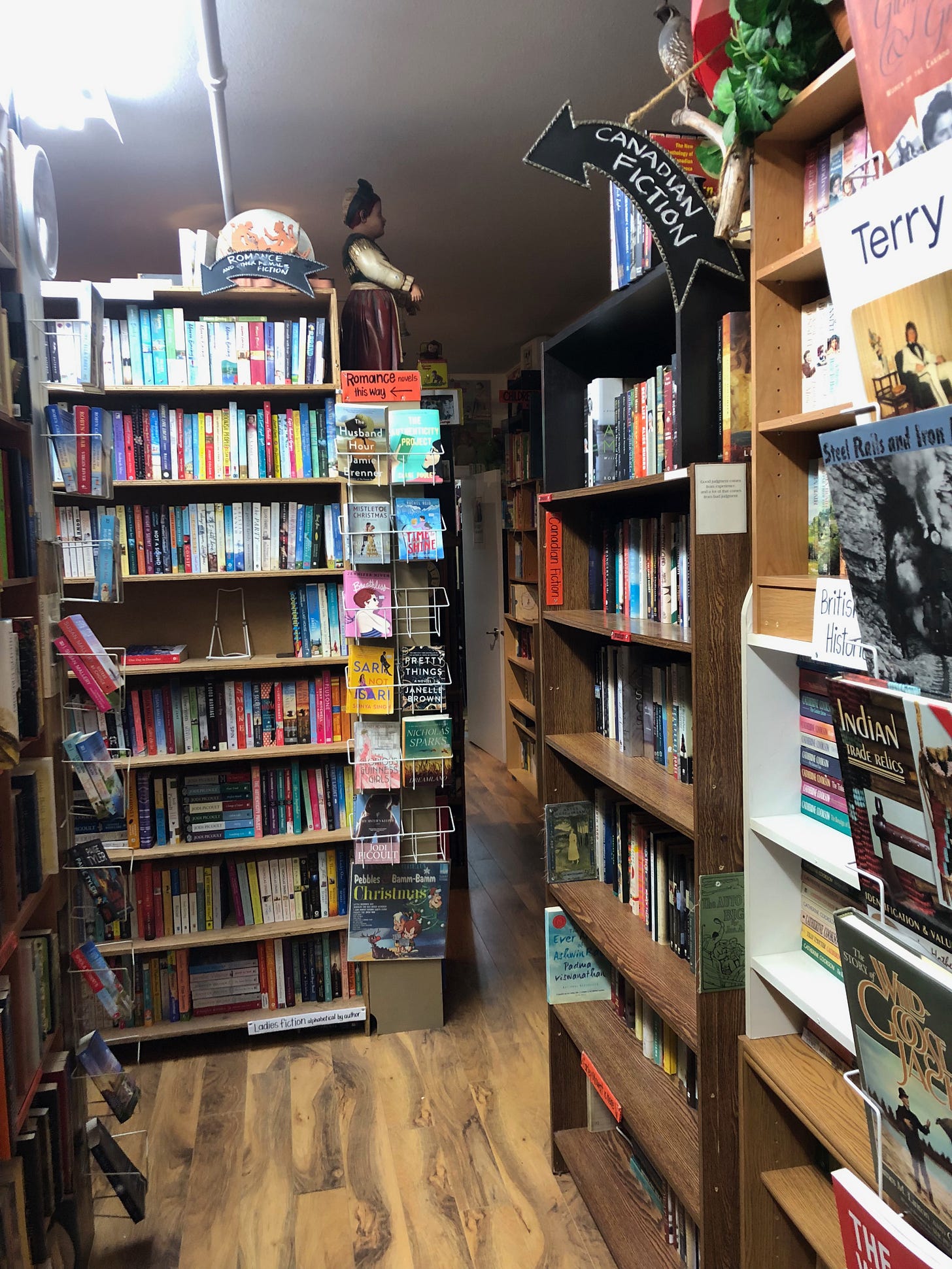As I mentioned in my last post, I stumbled on Daniel Defoe’s The King of Pirates in a used bookstore in my in-law’s Canadian town. It’s exactly the kind of bookstore in which you’d find such an unknown book, a labyrinthine place with eight-foot bookshelves that goes on and on, owned by the friendliest man. Locals stop in to chat. It’s dim and cozy, and the perfect place to browse.
The King of Pirates is a slim book, barely 100 pages, first printed in 1719 to take advantage of the success of Robinson Crusoe, first printed in the same year. Pirates has none of the narrative complexity or thematic depth of Crusoe; it was obviously hastily written1, and, as I said, is quite short. I was still delighted, and it was the perfect book to help pull me out of my reading slump.
Captain Avery, the narrator and protagonist, falls into the pirate life and eventually becomes master of a pirate fleet. He and his fellow pirates are very successful, despite some mistakes and setbacks, and eventually have so much money they don’t know what to do with it. Until they can figure it out, they establish a peaceful settlement on the island of Madagascar, where the European powers that would very much like to do them in leave them alone. But the men don’t want to stay on Madagascar forever, and must figure out how they can re-assimilate into European, specifically English, society, without their money drawing attention to themselves.
Avery is narrating his story to “set the record straight”; he himself has allowed rumors to balloon, but wants his readers to know that not only is he not *that* rich, he’s really a very nice pirate; he only wants your money and not your life, so don’t worry.
Pirates is a great example of a classic that’s not a Classic; there’s a reason you probably haven’t heard about it. It is eighteenth century trendy, fluffy reading. I love that I’ve found this, because understanding that people in the past also read books that weren’t Great Works of Literature helped me better understand the culture of reading and the nature of stories. People like stories, and one of the reasons they like stories is because they are fun. Sometimes you just want to read about pirates, and some people from three hundred years ago felt the same way. When Classics are *only* encountered in a classroom setting, it can be easy to start to think that they exist solely for their discussion potential, which tends to suck the enjoyment out of them. But, most people didn’t read Classics because of their discussions of Capitalism or Explorations of Colonialism or Women’s Roles in Society or whatever.
Of course all stories shape us, and we should both exercise caution in our reading, and ponder the truths that great works of literature have to offer us. But on the other hand, it can be easy to go too far in the other direction and shun works that aren’t deemed ponderous enough. Sometimes, the fun stories are what you need, and you can find that kind of tale in old books as well as new.
The brevity of Pirates was also helpful; even if I only read a few pages at a time that felt like real progress, and I knew I could finish it, even if it took a few weeks (which it did). And finishing gave me a boost of confidence to keep reading old books. I have Laurence Sterne’s A Sentimental Journey to read this month, and I’m even starting to wonder if I want to pick up Ivanhoe again (gasp!). It’s really amazing what the right book at the right time can do for your reading life.
If you, too, are looking for a short (less than 150 pages) classic to read, below follows a small list of short 18th century books you might wish to pick up2:
The King of Pirates, Daniel Defoe
The Coquette, Hannah Webster Foster
Fantomina by Eliza Haywood
Charlotte Temple by Susanna Rowson
At one point, Defoe gives a date in one paragraph, and then gives the same event an entirely different date in the very next paragraph. He was clearly not re-reading what he wrote carefully, if at all.
As usual, you can use your search engine of choice to look up plots and such. I enjoyed all of these books, but you should decide for yourself if they might be for you. And if you’re looking for a book to hand to a young person, definitely do your due diligence, as the last three books deal with “fallen women.” While the books aren’t explicit and the topic handled with nuance, they may or may not be appropriate, depending on the young person.




